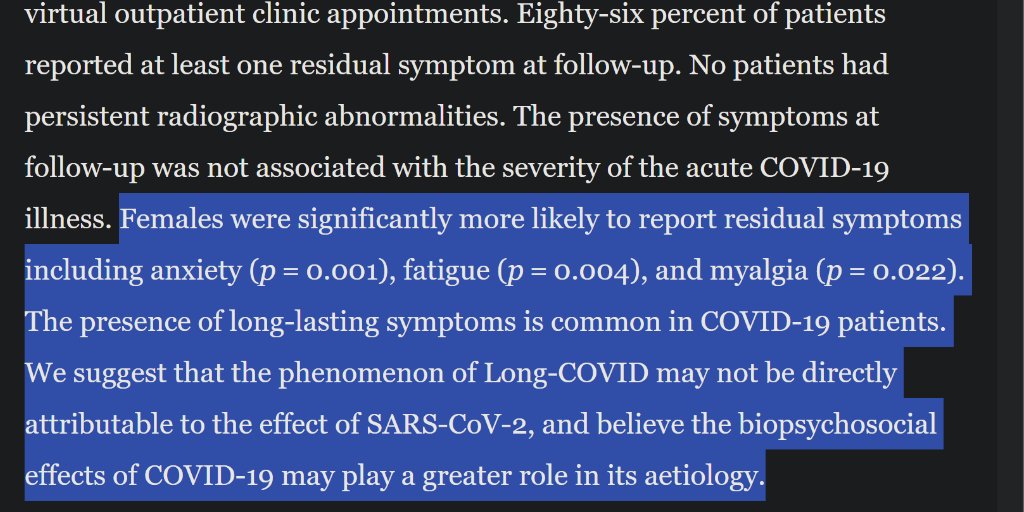
Professor of Psychology @UniOslo. Past @Yale @Harvard @UiB. Editor @Advances1n. Father. Views are my own. @kunstjonas.bsky.social @jonaskunst@mstdn.social
How to get URL link on X (Twitter) App




 This calculation assumes that "only" 25% of all infected develop Long Covid and 5% of these get MECFS. Note: Vaccines may have reduced the number of new cases, which is why these estimates are on the conservative side. The actual % may be higher. 2/
This calculation assumes that "only" 25% of all infected develop Long Covid and 5% of these get MECFS. Note: Vaccines may have reduced the number of new cases, which is why these estimates are on the conservative side. The actual % may be higher. 2/
 Obviously, the number of cases is increasing dramatically due to the #omicron variant that falsely is perceived to be harmless. Moreover, new research suggests that people in all age groups can get #LongCovid, children included. Thus, numbers will increase *a lot*.
Obviously, the number of cases is increasing dramatically due to the #omicron variant that falsely is perceived to be harmless. Moreover, new research suggests that people in all age groups can get #LongCovid, children included. Thus, numbers will increase *a lot*.


 Of course, not every article containing the term focuses specifically on the disease. However, it shows that awareness is increasing substantially. Over the pandemic (2019-2022), the number of studies mentioning the disease has more than doubled. In science, that is big! 2/
Of course, not every article containing the term focuses specifically on the disease. However, it shows that awareness is increasing substantially. Over the pandemic (2019-2022), the number of studies mentioning the disease has more than doubled. In science, that is big! 2/
https://twitter.com/KunstJonas/status/1382407699414061058The hallmark symptom of MECFS is that patients get *much* worse after physical exertion. Moreover, large patient surveys show that programs that require them to gradually increase their physical activities do not improve their condition but often lead to a permanent worsening. 2/
https://twitter.com/TimesONeill/status/1427555327734685700..are clear and need no further elaboration: For the past decades, proponents of the idea that people can treat or even cure ME through psychotherapy or graded exercise have failed to show that these treatments perform better than placebo. 2/

https://twitter.com/davidtuller1/status/1406335507953422336correction for multiple comparisons was not applied. The authors state: "Throughout this paper, we present unadjusted p-values. Methods for adjusting the family-wise error by methods such as the Bonferroni correction are known to be conservative..." 2/
https://twitter.com/PaulGarnerWoof/status/1377195611854934019For instance, adhering to unproven treatments can in the case of serious diseases such as cancer lead to a manifold risk of death. jamanetwork.com/journals/jamao… 2/

 In addition to reflecting implicit sexism and being unwarranted by the data, such conclusions
In addition to reflecting implicit sexism and being unwarranted by the data, such conclusions